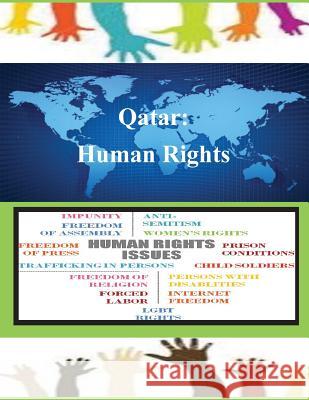Qatar: Human Rights » książka
Qatar: Human Rights
ISBN-13: 9781502878380 / Angielski / Miękka / 2014 / 28 str.
Qatar is a constitutional monarchy in which Emir Sheikh Tamim bin Hamad al-Thani exercises full executive power. In June the former emir Sheikh Hamad bin Khalifa al-Thani abdicated to his son, Sheikh Tamim. The 2005 constitution provides for hereditary rule by males in the emir's branch of the al-Thani family, which has ruled since 1868. The most recent national elections were in 2011 for the Central Municipal Council, an advisory and consultative body; observers considered them free and fair. Authorities maintained effective control over security forces. Security forces did not commit human rights violations. The principal human rights problems were the inability of citizens to change their government peacefully, restriction of fundamental civil liberties, and pervasive denial of noncitizen workers' rights. The monarch-appointed government prohibited organized political parties and restricted civil liberties, including freedoms of speech, press, and assembly and access to a fair trial for persons held under the Protection of Society Law and Combating Terrorism Law. Other continuing human rights concerns included restrictions on the freedoms of religion and movement, as foreign laborers could not freely travel abroad. Trafficking in persons, primarily in the domestic worker and labor sectors, was a problem. Legal, institutional, and cultural discrimination against women limited their participation in society. The noncitizen "Bidoon" (stateless persons) who resided in the country with unresolved legal status experienced social discrimination.
Zawartość książki może nie spełniać oczekiwań – reklamacje nie obejmują treści, która mogła nie być redakcyjnie ani merytorycznie opracowana.











